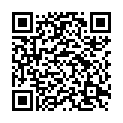|
|
|
| Module code: KI780 |
|
4V (4 hours per week) |
|
4 |
| Semester: 1 |
| Mandatory course: no |
Language of instruction:
German |
Assessment:
Written exam
[updated 02.07.2007]
|
KI780 Computer Science and Communication Systems, Master, ASPO 01.04.2016
, semester 1, optional course
|
60 class hours (= 45 clock hours) over a 15-week period.
The total student study time is 120 hours (equivalent to 4 ECTS credits).
There are therefore 75 hours available for class preparation and follow-up work and exam preparation.
|
Recommended prerequisites (modules):
None.
|
Recommended as prerequisite for:
|
Module coordinator:
Prof. Dr. Martin Buchholz |
Lecturer:
Prof. Dr. Martin Buchholz
[updated 01.04.2003]
|
Learning outcomes:
This course of lectures introduces students to the fundamentals of digital signal processing. Digital systems in the time and frequency domains will be discussed. The z and df transforms provide the basis for understanding and implementing signal processing algorithms.
[updated 02.07.2007]
|
Module content:
1. CTI systems in the time domain
2. Describing LTI signals and systems in the frequency domain
3. The z-transform
4. Digital filters
5. The discrete Fourier transform (DFT)
6. Signal processing algorithms
[updated 02.07.2007]
|
Recommended or required reading:
LECHNER W., LOHL N., Analyse digitaler Signale, Vieweg
JOHNSON J.R., Digitale Signalverarbeitung, Hanser
ZANDER H., Datenwandler, Vogel, 1990
BRIGHAM E.O., FastFourierTransformation (FFT), Oldenburg, 1992
[updated 02.07.2007]
|
Module offered in:
WS 2004/05
|


